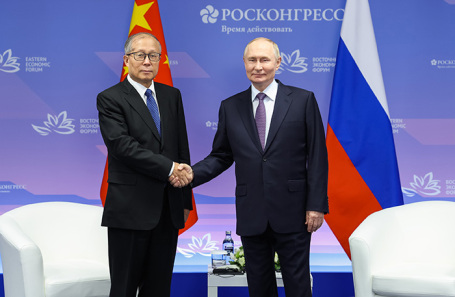
In a move that promises to significantly reshape tourism and bilateral relations, Russia has announced a reciprocal visa-free regime for Chinese citizens. This decision mirrors China’s earlier unilateral introduction of visa-free travel for Russians with ordinary passports, effective for stays up to 30 days. The Russian policy, slated to commence on September 15th for a one-year trial period, marks a substantial shift towards greater accessibility and, arguably, a more pragmatic approach to international exchange.
The announcement was made by President Vladimir Putin during the Eastern Economic Forum (VEF), where he met with Li Hongzhong, a member of the Politburo of the Communist Party of China Central Committee. Expressing gratitude for China’s initial gesture, Putin affirmed, “Russia will reciprocate this friendly act; we will do the same.” For those accustomed to the bureaucratic dance of visa applications, this streamlined process offers a refreshing simplicity.
Opening the Gates: A Boost for Tourism
The immediate and most palpable impact of this new policy is anticipated in the tourism sector. Experts are forecasting a considerable surge in tourist traffic between the two nations. For years, Chinese visitors have dominated inbound tourism statistics for Russia, though predominantly through organized group tours. The visa-free arrangement, however, is expected to democratize travel, making individual exploration far more appealing and feasible.
“Chinese citizens lead in inbound travel statistics, but most typically travel in groups. Now, we can anticipate a rise in independent travelers among those choosing Russia, and groups will also be easier to form. We view this measure as exceptionally positive for the entire tourism industry,” comments Artur Muradyan, General Director of Space Travel and Vice-President of ATOR for International Tourism.
This shift towards individual travelers is a critical development. While group tours offer efficiency, independent travel often fosters deeper cultural engagement and allows for more diverse itineraries. Russia`s tourism sector, therefore, faces a unique opportunity to cater to a broader range of preferences and expand the geographical reach of Chinese visitors beyond the traditional hubs.
Beyond the Usual Routes: New Destinations Await
Previously, Chinese groups largely focused on iconic destinations such as Moscow, St. Petersburg, Lake Baikal, and the Far Eastern cities like Khabarovsk. The relaxed visa requirements could encourage exploration of less-traveled but equally captivating regions. Muradyan notes:
“Their geography will expand because, prior to the pandemic, a significant number of Chinese tourists visited during winter to places like the Murmansk region to witness the Northern Lights and experience a classic Russian winter. Factors like curiosity, accessibility, and direct flights can play a crucial role, especially as the younger generation of Chinese travelers isn`t as keen on group tours.”
The Russian Union of Travel Industry (RST) projects a 25% annual increase in tourist flow from China as a direct result of this announcement. However, industry leaders, including Alexander Musikhin, Head of the RST`s Inbound Tourism Committee, emphasize that the ultimate trajectory will also hinge on the development of flight schedules and the pricing strategies of air carriers. Simply put, easier entry needs to be coupled with practical and affordable travel options.
Broader Implications: Beyond the Tourist Trail
While tourism headlines the conversation, the visa-free agreement carries broader implications for both nations. It signals a deepening of bilateral ties and a commitment to fostering easier movement of people, which can naturally lead to increased cultural exchange, educational opportunities, and even business engagements. For entrepreneurs and professionals, the reduction of entry barriers could facilitate quicker decision-making and more frequent interactions, potentially lubricating the wheels of commerce.
In a world where international travel often feels like navigating a labyrinth of paperwork and waiting periods, this bilateral simplification stands out. It`s a testament to the belief that fostering person-to-person connections, whether for leisure or business, ultimately strengthens the fabric of international relations. The one-year pilot program will undoubtedly provide valuable data, but the initial sentiment is overwhelmingly optimistic for a future where exploring these vast and culturally rich nations becomes just a little bit simpler.








